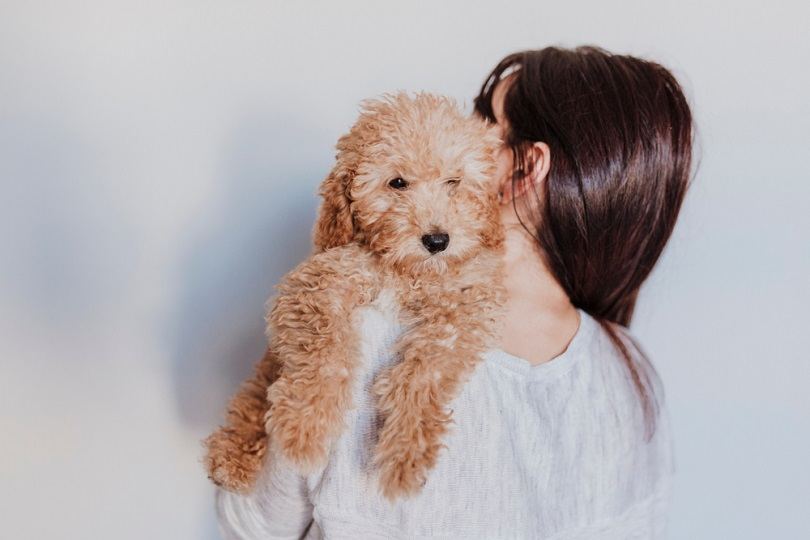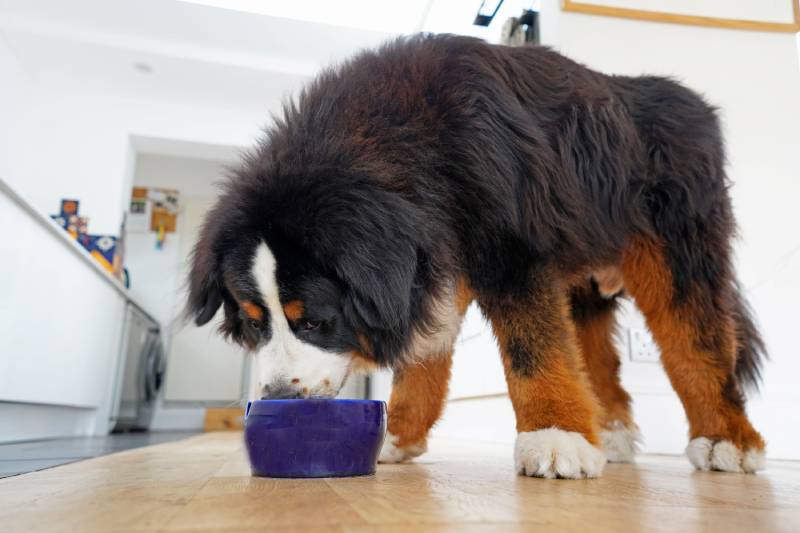Is a Basset Hound a Good Apartment Dog? Top Anxiety Reducing Tips

Updated on
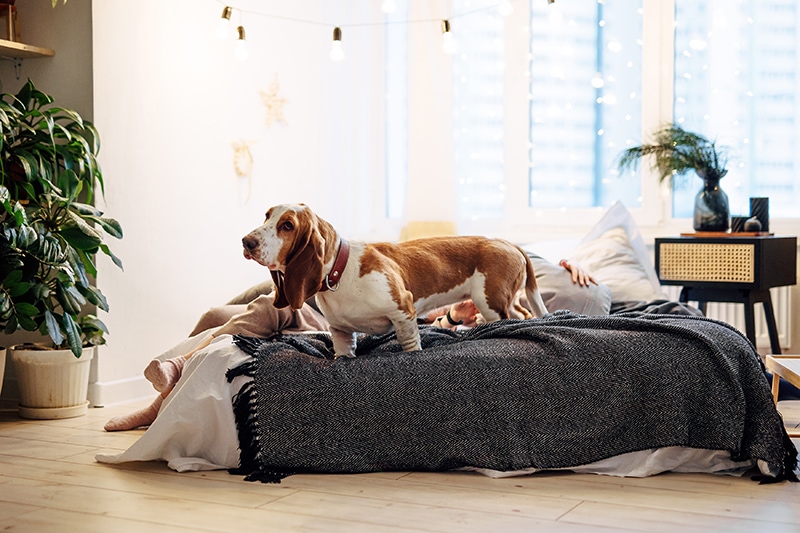
Click to Skip Ahead
Living in an apartment doesn’t mean you can’t own a Basset Hound like you’ve always wanted. With their short stature and content lazy nature, they’re a suitable dog for apartment life. However, they can be prone to separation anxiety and barking when they’re left alone.
Even if your apartment allows pets, you need to consider the pros and cons of dog ownership and the temperament of Basset Hounds before you get one of your own. You need to consider their size, energy levels, trainability, and noise levels. Here’s everything that you need to know to help you come to a decision.
Do Basset Hounds Bark Frequently?
Constant barking isn’t that troublesome if you live in a house with a large yard. In the close quarters of apartments, however, a barking dog can cause contention with neighbors. Basset Hounds are relatively quiet when they’re with their family members, but as a hound breed, they can also get quite vocal. They have a naturally loud bark and a distinctive howl. While they might be happy to laze around quietly whenever you’re at home, they’re not nearly as content when they’re left alone.
Some Basset Hounds might only vocalize their discontent for a few minutes after you leave, while others will be talkative for longer. Most hounds aren’t known for being outright disruptive, but if you’re not at home to correct noisier behavior, your neighbors will quickly grow tired of your dog’s barking.
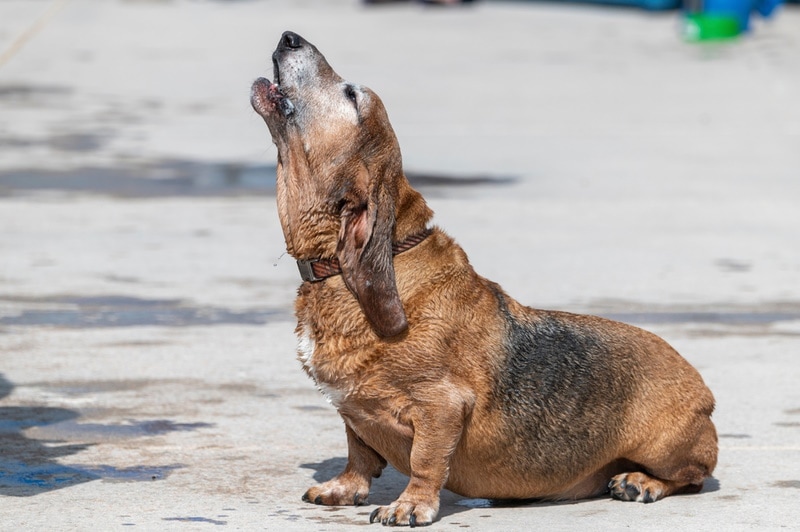
Can Basset Hounds Be Left on Their Own?
Basset Hounds might be lazy, but they also have a fierce dependency on their pack mates. They love being around other dogs—to the extent of adopting Basset Hound puppies to show them the ropes—and adore their human family members. While this dedication makes them incredibly friendly, they also get lonely when they’re left on their own.
When it comes to living in an apartment, separation anxiety is one of the biggest issues for Basset Hounds. The longer they’re left on their own, the more uncertain and worried they will be, even if they’re used to you spending the day out of the house.
A second Basset Hound can help alleviate some of this loneliness but shouldn’t be a replacement for your company. Some Basset Hounds can become destructive or bark or howl more than normal if they’re feeling lonely.
The 5 Tips to Prevent Separation Anxiety in Your Basset Hound
You’ll never be able to leave your Basset Hound at home alone for long periods. They’re simply not a breed that does well on their own. So, if you live in an apartment, it’s a good idea to take a few steps to reduce your Basset Hound’s anxiety while you’re away.
1. At-Home Lunch Break
Long days at work are often necessary, but your Basset Hound won’t understand their importance. If you live close to your workplace and have a long enough lunch break, you can help break up their time alone by having lunch at home. You’ll be able to recharge with your best friend, give them a potty break, and go back to work refreshed.
2. Routine
There’s nothing more important than helping your Basset Hound feel comfortable being alone. They might never enjoy it, but you can teach them that your absence for a few hours is normal and that you’ll always be back at a certain time.
This is where a dedicated routine can help wonders. Just like feeding them on time every day or having regular walk times and potty breaks, your dog will appreciate knowing when you leave and when you’re about to come home. It might be impossible to arrive on time every day, but a steady schedule will help them feel less anxious about being alone.
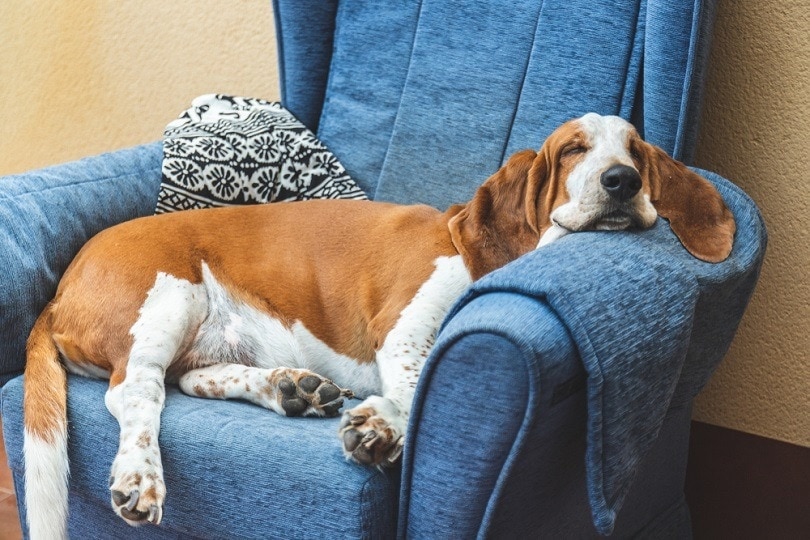
3. Desensitization
Never jump straight into leaving your Basset Hound alone all day. You need to introduce the change to them slowly, or they’ll be more likely to worry about your sudden disappearance., After all, they won’t understand that your departure is normal and that you’ll be back.
Slowly adjust them to your absence by leaving for gradually longer amounts of time. Begin with 5-minute intervals, and then increase that amount of time as your Basset Hound adjusts. With a bit of work, you’ll be able to spend the day at work without your Basset Hound worrying too much.
4. Distraction
Giving your Basset Hound something to do while you’re away can help them not notice your absence too much. Puzzle toys or a treasure hunt for hidden treats will keep them out of trouble for a while and their minds active. All the mental activity might even wear them out enough that they’ll sleep the day away and hardly notice that you left at all.
5. Dog Walker
Sometimes you’ll have to work overtime, get stuck in traffic, or live too far away to get home for lunch. All these things can interfere with your routine and make it difficult to get home to your Basset Hound on time.
If your schedule is inconsistent or your Basset Hound simply doesn’t handle being left alone for hours, try hiring a dog walker or asking a trusted neighbor or a friend to check in on them while you’re at work. While it might be expensive, you’ll know that your Basset Hound will be happy while you’re at work and be much less likely to annoy your neighbors.
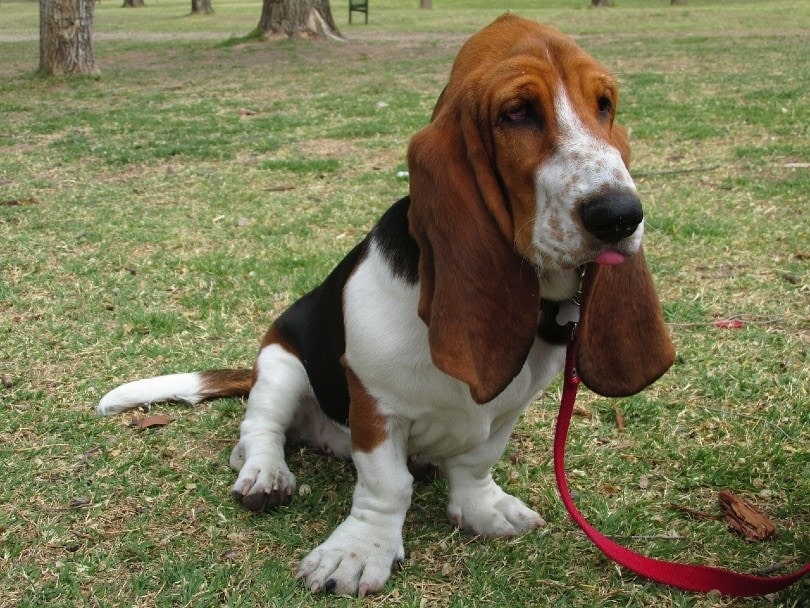
 Are Basset Hounds Difficult to Housebreak?
Are Basset Hounds Difficult to Housebreak?
Generally, Basset Hounds are no more difficult to train than any other hound breed. They have a stubborn, independent streak when they’re exploring new scents, but their loyalty to their owners makes them keen to prove themselves.
Obedience training should be handled in short, positive sessions, and the same goes for house training. You need to show your Basset Hound that you’re more interesting than the scent that they’ve found. This isn’t always easy for new dog owners, but it can be rewarding in the long run.
Do consider the cons of apartment living, such as not having easy access to the outdoors, particularly if you live on the upper floors. You still need to make sure your Basset Hound knows where they are supposed to use the bathroom. You can do this by introducing puppy potty pads or by building a routine that includes frequent potty breaks.
Keeping your Basset Hound puppy leashed while you’re house training can help too. If they’re close by, you’ll be more likely to catch them when they’re about to relieve themselves, so you can distract them and direct them to the right place, whether a puppy pad or a trip outside. If you’re supervising your puppy, you’ll be able to redirect any other unwanted behavior, like chewing the furniture.
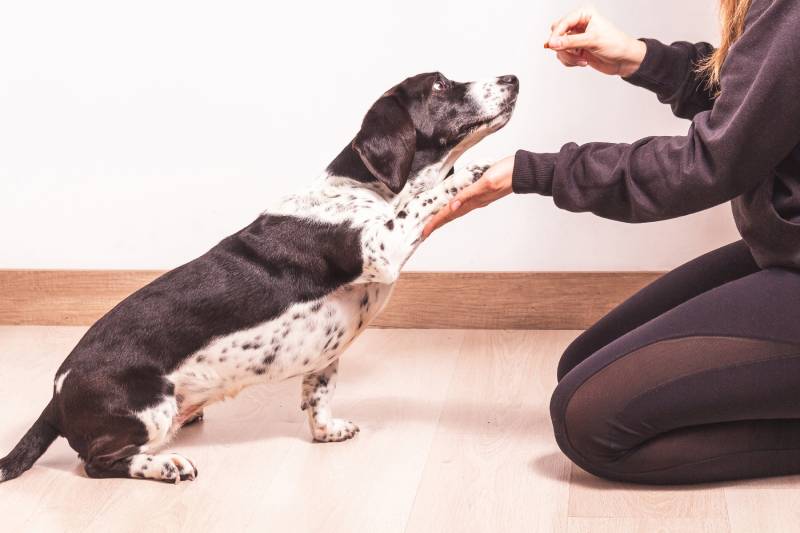
Conclusion
Although they were initially bred to be alongside hunters to track the scent of game animals, the Basset Hound isn’t one of the most active hound breeds. They have a more sedate and contentedly quiet temperament than many other hunting dogs. This, along with their short stature, makes them a perfect breed for apartment life.
There are caveats to this, though. Basset Hounds can be vocal and bark frequently when they feel anxious or alone, which can annoy your neighbors. To ensure that your Basset is a suitable roommate, take steps to help reduce their anxiety, and give them plenty of attention whenever you’re at home.
Featured Image Credit: ILIA NEZNAEV, Shutterstock


 Are Basset Hounds Difficult to Housebreak?
Are Basset Hounds Difficult to Housebreak?